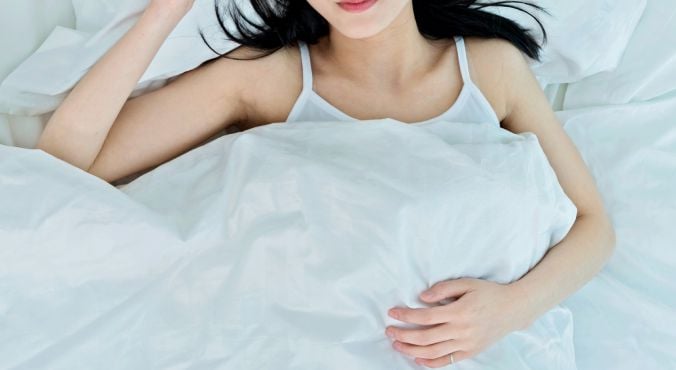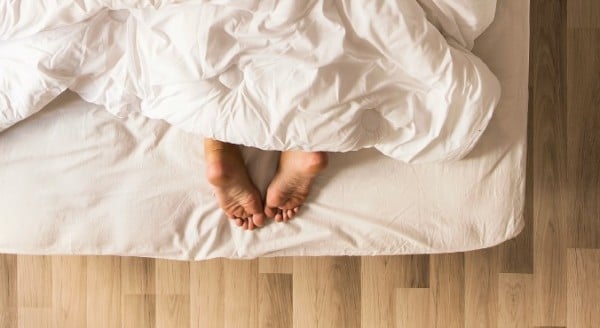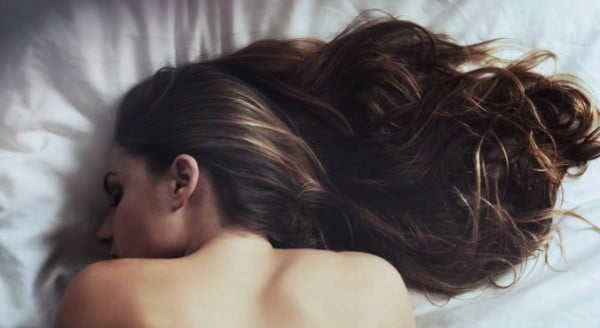
Image via iStock.
You brush your teeth, jump into bed, turn the lights out and drift off. Everything is peaceful. And then BAM. You feel like you’re falling off a tall cliff, or tripping, and you jolt wide awake. Not so pleasant after all.
In a study published in the Sleep Medicine Journal, scientists from the University of Bologna, found the jolts (also known as “sleep starts” and “hypnic jerks”) we experience during the night are associated with a rapid heartbeat, quickened breathing, sweat, and sometimes “a peculiar sensory feeling of ‘shock’ or ‘falling into the void”.
So why does it happen? There are a few reasons apparently.
1. Myoclonus.
Myoclonus is the spasmodic jerky contraction of groups of muscles and is one of the reasons you can suddenly be thrown out of sleep. 70 per cent of us experienced it, but sadly – no one really knows the exact reason behind it.
“We don’t really know why exactly they happen. We know that they do happen and we know that it is something that is not clinically significant. They don’t cause any issues. It does happen to some people more than others and it can happen to you more often in particular times in your life,” explains Dr Maree Barnes, from The Sleep Health Foundation.
“For example, in pregnancy limb movement can be more common but that may be due to the fact that women often don’t sleep as well when they’re pregnant, so they may be more aware of the leg movements.”































































































